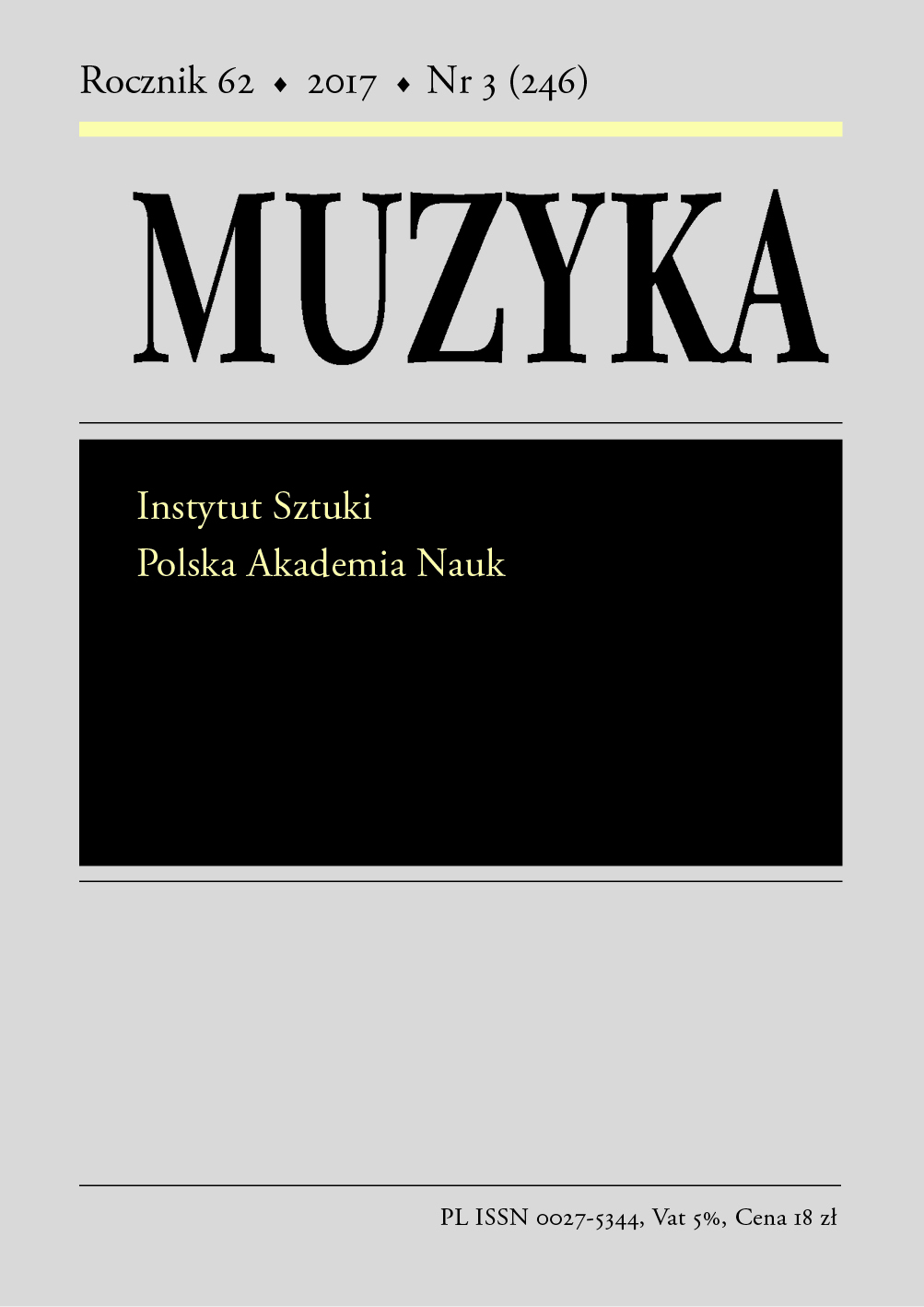Korespondencja Aleksandra Tansmana z Krzysztofem
Biegańskim w świetle recepcji jego muzyki w Polsce
w latach międzywojennych
Aleksander Tansman’s correspondence with Krzysztof Biegański in the context of the reception of his music in Poland during the interwar period
Author(s): Zofia HelmanSubject(s): Music
Published by: Instytut Sztuki Polskiej Akademii Nauk
Keywords: Aleksander Tansman; Krzysztof Biegański; correspondence; Polish music abroad; twentieth century music;
Summary/Abstract: Aleksander Tansman (1897–1986), a composer born into a Jewish family, raised and educated in Poland, left the country in 1919 after receiving a prize and two distinctions at the first composition contest organized in Poland after the Great War. He settled in Paris, where he soon joined the Parisian circle of musicians and his popularity was on a rise. In the 1920s and 1930s, he toured the United States with concerts, and in 1932 he went on a tour across four continents, during which he performed as a composer, conductor and pianist. Despite these successes, in his homeland his works were seldom performed, and Polish critics of conservative persuasion were very hostile in their reviews. He visited Poland twice in 1932 and 1936. However, the political upheavals of the 1930s and the rise of anti- Semitic sentiments prompted Tansman to take French citizenship. During the Second World War and the first decade after the war his contacts with Poland were interrupted. Communist authorities treated emigrants with suspicion as individuals potentially hostile towards Poland’s new political system and alien to Polish culture. For this reason, it was not until 1958 that contacts with Tansman were resumed, by conductor Stanisław Wisłocki (1921–98) and musicologist Krzysztof Biegański (1936–67), who published several articles about Tansman and contributed a lot to the reception of his music in Poland and to the appreciation of his significance for new developments in music. Tansman’s correspondence with Biegański from the period 1959–61 is discussed in the second part of the article.
Journal: Muzyka
- Issue Year: 62/2017
- Issue No: 3
- Page Range: 71-96
- Page Count: 26
- Language: Polish

